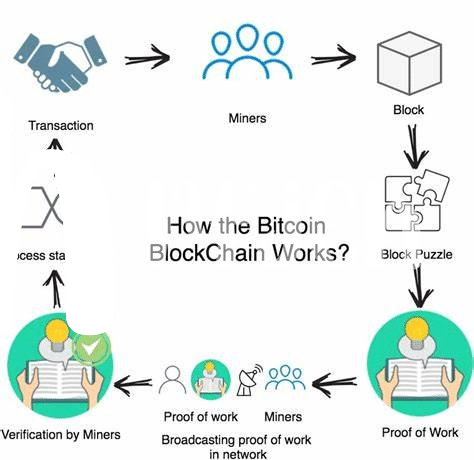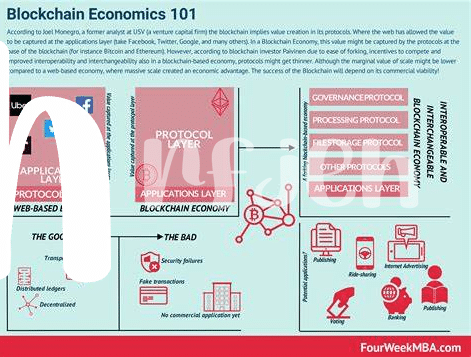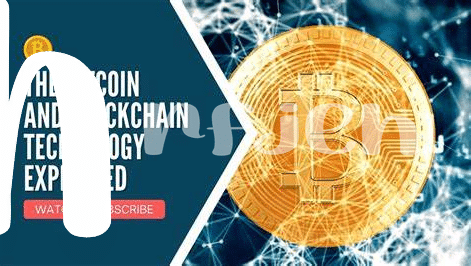🌍 Breaking down Traditional Barriers in Global Trade

Once upon a time, if you wanted to buy a fancy rug from halfway across the world or sell your homemade jams to someone in a different country, you had to jump through hoops. There were endless forms to fill, complicated rules to follow, and hefty fees to pay, making global trade seem like a daunting mountain to climb. Enter blockchain, a kind of digital magic book that everyone can see but no one can tamper with. Suddenly, the game changed. This technology started to erase the complicated paperwork, cut down on the costs, and make trading across borders smoother and faster. Imagine a world where you can send your products across the globe as easily as sending a text message. That’s the promise blockchain brings to global trade, transforming how we think about buying and selling internationally and making it accessible to everyone with a dream and an internet connection.
| Traditional Trade | Blockchain-Enabled Trade |
|---|---|
| High costs due to fees and middlemen | Lower costs by removing unnecessary intermediaries |
| Lengthy processes and paperwork | Streamlined processes with digital records |
| Limited access to new markets | Easier access to global markets |
| Risks of fraud and disputes | Reduced fraud risk with transparent transactions |
💡 Revolutionizing Money Transfer with Peer-to-peer Networks
Imagine a world where sending money to someone on the other side of the planet is as simple and fast as sending a text message. This is now possible thanks to peer-to-peer networks, a core ingredient of blockchain technology. These networks allow two people, no matter where they are, to exchange value without needing a middleman, like a bank, to step in. This means fewer fees for the transaction and you don’t have to wait days for the transfer to go through. It’s like handing cash over to your friend directly, except it’s digital and can travel across borders instantly.
For more insights into how blockchain is transforming industries beyond just cryptocurrency, consider exploring detailed analyses, such as those found at https://wikicrypto.news/blockchain-technology-revolutionizing-industries-beyond-cryptocurrency. This innovation is crafting a new era of financial freedom, where trust is built not on promises or expensive processes, but on the unchangeable nature of blockchain records. The result? A more inclusive economy where everyone, regardless of their location or economic status, has the opportunity to participate in global trade and access financial services effortlessly.
🛠 Fabricating Trust through Immutable Records

Imagine a world where every time you make a promise, it’s etched in stone, unchangeable and visible for everyone to see. This is the essence of how blockchain is revolutionizing trust. In traditional systems, trust is often established through middlemen like banks or governments, whose job is to maintain records that are supposed to be truthful and secure. However, these records can be altered, sometimes leading to disputes or fraud. Blockchain introduces a game-changing approach: every transaction, or promise, is recorded in a way that cannot be changed or deleted, thanks to a technology called cryptography. These records are then linked together in a chain, making it nearly impossible to tamper with. This doesn’t just build trust; it engineers trust in a way that was previously unheard of. By removing the need for middlemen, blockchain enables a direct handshake between parties, no matter where they are in the world. 🌐🤝 This not only makes transactions safer but also brings down costs and speeds up processes, laying the foundation for a new era of transparency and reliability in every exchange, be it a contract, a sale, or a simple promise. With blockchain, trust is not just expected; it’s embedded in the very fabric of how we exchange value.
🔗 Powering Decentralized Business Models for Startups

Imagine a world where the young and innovative leaders of tomorrow’s businesses can set up shop without having to navigate the complex labyrinth of traditional business models. This vision is becoming a reality thanks to blockchain technology. It’s like building a digital Lego house; piece by piece, blockchain allows startups to construct their business models on a platform that is open to everyone, but secure and without the need for a central command. This means that even small teams can compete on a global stage, sharing their ideas and products directly with their audience. The notion of decentralization, at its core, is about removing the middleman, making it easier and faster for startups to innovate and deliver value to their customers.
In this brave new world, startups are not the only winners. Users, too, rejoice as they gain more control and insight into the businesses they care about. Trust is no longer handed out; it’s earned and verifiable, thanks to the transparent nature of blockchain. For those curious about diving deeper into the safety this technology offers, especially in the financial realm, learning more about bitcoin interest accounts and the blockchain is a great start. This pivotal shift is redefining what it means to launch and grow a business in our interconnected world, promising a future where the playing field is leveled, and opportunities are as limitless as one’s ambition.
💸 Transforming Payments with Cryptocurrency Adoption
Imagine a world where sending money across the globe is as easy as sending a photo to a friend on your phone. That’s the kind of change cryptocurrencies are bringing to how we handle our finances. Unlike traditional money, cryptocurrencies use a special kind of technology called blockchain, making it possible to transfer funds directly from person to person without needing a bank in the middle. This means not only can transactions happen faster, but they often come with lower fees, too. It’s like skipping the line at the bank and going straight to the front. What’s more, for people in places where banking services are hard to come by, this can be a big deal. It offers them a new way to join the global economy. This isn’t just about buying and selling online with digital coins; it’s a complete makeover for the financial system as we know it, putting the power back in the hands of the people.
| Feature | Traditional Payments | Cryptocurrency Payments |
|---|---|---|
| Speed | Can take days | Often instant |
| Fees | Higher due to intermediaries | Generally lower |
| Accessibility | Requires bank account | Internet access is enough |
| Global Use | Exchange rates and regulations apply | Borderless by design |
🔄 Shaping a New Era of Digital Ownership

Imagine a world where you can truly own a piece of the digital realm, where your online treasures, be it a virtual plot of land in an expanding online universe or an exclusive digital artwork, are indisputably yours. This isn’t a fantasy; it’s the reality created by blockchain technology. By recording ownership in an unchangeable digital ledger, blockchain ensures that when you buy something digital, it’s as genuinely yours as a book on your shelf. This shift towards digital ownership not only secures your assets in the cyber world but also opens the doors to endless possibilities for creators and collectors alike. Artists can now reach their audience directly, with the confidence that their original works are protected. Collectors can revel in owning unique digital items, from art to in-game assets, knowing their value is preserved. For more insights into this transformative technology, consider diving into bitcoin educational courses and exploring defi ecosystems and the blockchain. This emergent era of digital ownership is not just reshaping our online lives; it’s redefining the very concept of “ownership” in the digital age.
